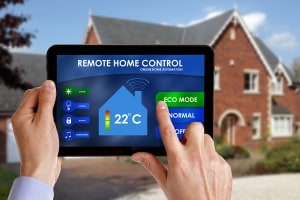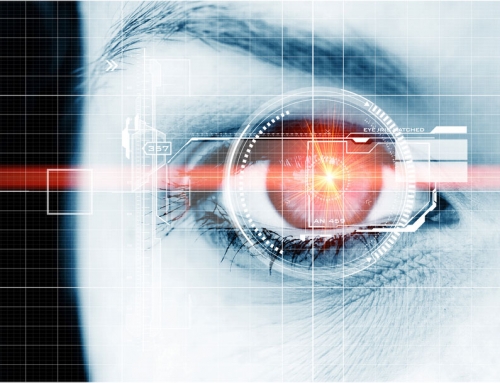The Internet of Things and How It Affects You
 Here we are today, witnessing firsthand the advent of the ‘Internet of Things,’ (IoT) a concept that just a few years back seemed oddly sci-fi-ish to the masses. IoT refers to a system where billions of objects in the physical world, and sensors within or attached to these objects, are connected to the Internet via wireless or wired connections, that enable them to share data. Where this concept once required some imagination, insofar as we struggled to envision what our lives would look like when most of our electronic objects would connect to the Internet and talk to each other, IoT is now inherently a growing part of of our everyday culture. No wonder it’s presently regarded as an indispensable convenience.
Here we are today, witnessing firsthand the advent of the ‘Internet of Things,’ (IoT) a concept that just a few years back seemed oddly sci-fi-ish to the masses. IoT refers to a system where billions of objects in the physical world, and sensors within or attached to these objects, are connected to the Internet via wireless or wired connections, that enable them to share data. Where this concept once required some imagination, insofar as we struggled to envision what our lives would look like when most of our electronic objects would connect to the Internet and talk to each other, IoT is now inherently a growing part of of our everyday culture. No wonder it’s presently regarded as an indispensable convenience.
A Little History
According to ZDNet, a business technology news website, the nascent beginnings of this vast technological web known as IoT, and the idea of adding sensors to basic objects to make them communicate with one another, dates back to the 1980s. Unfortunately, it was slow to evolve because the infrastructure needed to support it wasn’t quite ready. Since then, the concept of ‘smart’ technology for homes and businesses has really taken off, becoming a dominant theme across society. From traffic lights designed with cameras that can change with the flow of traffic, to modern bridges constructed with smart cement, IoT offers a vast range of possibilities – and it continues to expand at an accelerated pace.
 The Future is Now
The Future is Now
The future has arrived and IoT is delivering on its promise to make our environment — our homes, offices and vehicles — smarter and more interactive than we ever could have imagined! Smart homes, with their smart fridges and smart thermostats, can track important details like expiry dates and automatically turn the thermostat on in anticipation of our return home. Smart homes can even help the elderly stay in their own homes longer, while living more independently. Such tech features have the potential to save time and minimize stress for millions of people the world over.
Businesses also stand to benefit immensely from the IoT. Medical institutions are better equipped to keep track of inventory and equipment. With help from IoT, healthcare organizations are able to streamline their processes and optimize their workflow. Meters and sensors used in manufacturing can assist in waste reduction and increase energy efficiency.
On an even larger scale, sensors can help us to better understand how noisy or polluted our environment might be. Autonomous vehicles and smart cities could change how we build and manage our public spaces by offering city planners feedback and greater understanding of how a city is functioning, allowing them to monitor and make changes to improve residents’ lives.
The Potential Drawbacks of the IoT
While IoT suggests a utopic way of life, it carries with it the potential for new problems and unanticipated risks. One of the top disadvantages of living in an increasingly connected world is a much higher chance of data invasion. In a time when more companies and government agencies have proven vulnerable to hackers, invasion of privacy is a major concern for businesses and consumers. The more connected we become, the greater the risk is of having our personal and work information leaked to those with nefarious intentions. If your home is filled with smart devices, you may be more likely to be the victim of identity theft or even a home invasion. Businesses also could be more vulnerable to fraudulent practices and security breaches as well.
IoT will undoubtedly continue to evolve and surprise us with the things it can do, as people are already coming to rely on the conveniences that connectivity between technology and objects affords them. However, individuals and businesses will need to step up their defenses against the security issues that accompany technological convenience. After all, it’s a brave new world out there and the territory ahead is largely unpaved.


